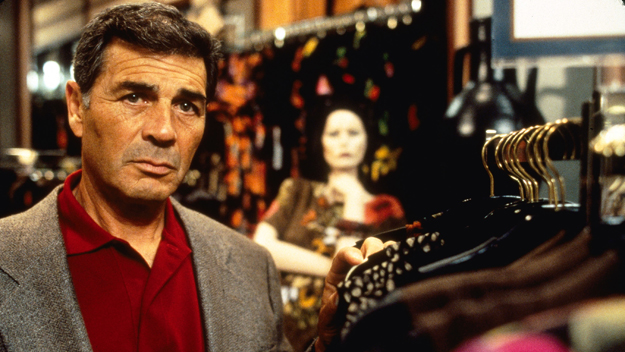News to Me: Cronenberg, Parasite fever, and farewell to Robert Forster

Robert Forster in Jackie Brown (Quentin Tarantino, 1997)
1) After 17 days and 200 screenings, this year’s NYFF has come to an end. Capping off the event, FC Editor-in-Chief Nicolas Rapold sat down with a panel of our regular critics—Michael Koresky, Amy Taubin, Nellie Killian, and Phoebe Chen—to discuss their highlights of the festival. For FilmLinc Daily, festival director Kent Jones bids farewell, with NYFF57 being his last at the helm. And as a special edition of his regular Mubi column, FC mainstay Adrian Curry highlights some of the best NYFF posters from 50 years ago.
2) Drawing attention to one of the lesser-appreciated aspects of NYFF, Criterion’s David Hudson recaps the critical response to this year’s Projections program. Hudson manages to weave in a few thoughts of his own, covering all six features and six shorts programs on display, while giving special mention to the work of Tony Pipolo for Artforum, David Perrin for Mubi, and Ela Bittencourt for Hyperallergic, among others. For even more angles on the avant-garde: check out our recent Projections roundup on the FC podcast.
3) Robert Forster passed away last week, having just appeared in the Breaking Bad spinoff film, El Camino. Not long ago, Forster sat down with Josh Olson and Joe Dante to discuss his career on the Movies That Made Me podcast: “I had a good five-year first act to my career, and a long, dropping second act to my career—27 years worth—and then, finally, Jackie Brown gave me some loft . . . It’s been a fabulous life, I cannot tell you how grateful I am to have stumbled into what I’m doing.” In Forster’s honor, The Guardian published both this obituary and a few words from Peter Bradshaw.
4) Marking the IFC Center’s biggest opening in history, Bong Joon-ho’s Parasite became a full-blown phenomenon last weekend, selling out all 55 screenings in NYC. Not to say that we predicted this, but you’ll find Bong’s Palme-winner on the cover of our latest issue, with Amy Taubin and Ari Aster inside: “don’t read this piece until you’ve seen Parasite, because I’m going to give a great deal of the game away.” (More for the so-called “Bong Hive”: Rachel Syme for The New Republic on Cannes and class consciousness.)
5) Ulrich Köhler’s In My Room recently received US distribution thanks to Grasshopper Films. After making its debut in Cannes’s Un Certain Regard section last year (where Dennis Lim spoke with the director), the film is now screening at the Museum of the Moving Image. Köhler recently picked ten of his favorite films from the past decade for Grasshopper’s Transmissions blog, as well as five more for Le Cinéma Club (who, for the next week, will be streaming Alice Diop’s Towards Tenderness).
6) After a surprise win at Venice and the ominous threat of an incel uprising, it seems the twisted Joker discourse may finally be at an end. Recapping some of the better (and more recent) writings on the Clown Prince of Crime: FC regular Nick Pinkerton on “Phillips’s second dip in the shallow end of the prestige pool” for 4Columns; John Semley for The Baffler, writing that “Joker is . . . a symptom of the very same disease it pretends to diagnose”; Felix Biederman’s deeply sarcastic piece on our absurd culture for Deadspin; and finally, the official FC take from Phoebe Chen, writing on “the easy recuperation of popular iconography for ideologically disparate ends.”
7) As part of MoMA’s reopening, the museum will be putting its own history on display, calling back to the founding of the Film Library (now the Department of Film) in 1935. Iris Barry’s History of Film attempts to reconstruct some of MoMA’s earliest film programs, using the work of its first curator, Iris Barry, as a guide. Chosen for their “pervasive social effect,” the Barry-influenced lineup includes F.W. Murnau’s Sunrise, Erich von Stroheim’s Greed, and D.W. Griffith’s Intolerance.
8) “Whatever ‘interpretation’ turned out to be, I was ready to enlist in the fight against it. I still am, even if interpretation, in one form or another, has been the main way I’ve made my living as an adult.” As part of the NYT Magazine’s recent Culture Issue, A.O. Scott writes on the profound influence Susan Sontag has had on his life—discovering Against Interpretation as a boy, how he “craved for the drama of her ambivalence,” and later refused to meet his hero. (For another great Sontag-adjacent essay, check out Nico Baumbach’s three-part piece on cinephilia.)
9) Two great interviews popped up this week, though they differ wildly in tone. The first, from Dissent, sees RaMell Ross unpack his film Hale County This Morning, This Evening: “the banal is naturally in opposition to the notion of entertainment, and it is through the representative strategies of the entertainment media that we’ve partly come to know what it means to be black.” And the second, from The Film Stage, puts Mister America’s Gregg Turkington on the stand: “It feels to me like this whole industry is geared towards these big babies . . . even types of movies that were previously for adults, those have kind of been lobotomized as well.”
10) David Cronenberg is teaming up with Netflix for his next project, a mini-series adaptation of his 2014 novel Consumed (which may explain his “Netflix is the future” comments from earlier this year). Though the mini-series had been rumored for some time, Cronenberg finally gave the project a proper announcement at the recent Festival du Nouveau Cinema in Montreal. According to The Film Stage, Consumed will see Cronenberg return to the body horror genre, with his novel following “a camera-obsessed couple who discover a North Korea plot at world domination centered on planting bugs in women’s breasts.”
We leave you this week with The Nest, Cronenberg’s creepy promotional short that offers something of a taste-tester for the forthcoming Consumed.
https://www.youtube.com/watch?v=odFh5LbTPI4







